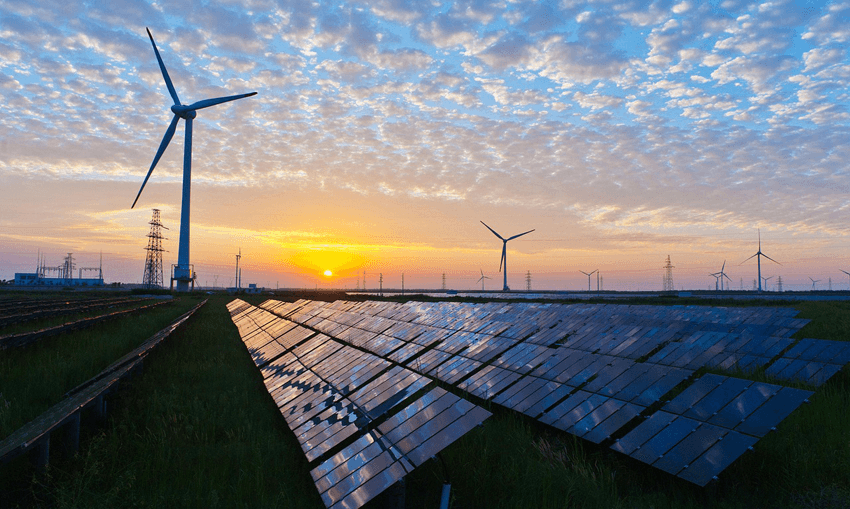Climate change is arguably the single greatest issue facing society today, but too much focus is being put on the likely challenges and costs. The Sustainable Business Council’s Abbie Reynolds argues that instead of worrying about the negatives, businesses need to understand that New Zealand’s transition to a low emissions economy is an opportunity for economic expansion and innovative growth.
When it comes to climate change, we are already seeing the effects creep into our daily lives, with an increasing number of extreme weather events causing destructive storm surges, hurricanes, floods and droughts. In business, we are also seeing the effects as consumers, shareholders and businesses move their investments away from fossil fuels and demand to know more about the environmental impact of the goods and services they buy.
The Sustainable Business Council (SBC) believes Aotearoa’s transition to a low emissions economy is an enormous business opportunity. Dr Matthew Bell from Ernst and Young has described it as not only the largest economic disruption in our lifetimes but also the greatest driver of innovation since World War II.
Research from the Business and Sustainable Development Commission (BSDC) estimates global development to meet the UN Global Goals, which could unlock new markets worth $12 trillion USD and a whopping 380 million jobs.
Forward-thinking companies get it. Many of our members know they cannot afford to be left behind as the world makes transformative changes and embraces new, low emissions business models. They want to position New Zealand so it can benefit from the challenge. They want to be part of the solution.
Already, we are in a great position to do this. We are the envy of energy ministers around the world with our electricity system that is 85% renewable. We have invented and invested significantly in geothermal and wind technologies, putting us well ahead of the pack. We have the fourth largest installed geothermal power generating capacity in the world and enough renewable electricity sources consented to charge every car in New Zealand for the equivalent of just 30 cents a litre. The electrification of transport remains one of our largest green growth opportunities.
We can also build on the hundreds of emissions reductions initiatives already underway. Companies like Waste Management are converting their car and truck fleets to electric alternatives, while Countdown is reducing their landfill with innovative food waste schemes. Vector is trialling peer-to-peer technology that could one day see individual households’ trade energy, and smart meters have been rolled out across the country, allowing households to monitor and improve their energy use.
None of this is to ignore the challenge ahead of us and the urgency of action. But too much of a focus on the likely challenges, costs, and what we stand to lose results in paralysis. If you are negative, it is difficult to inspire action. As a country, we need to engage in positive and consistent storytelling which will normalise the transition and motivate action.
It’s also time to take the politics out of climate change. Businesses need long-term certainty beyond the election cycle to make the right investments and changes to their business operations. They need consensus across all political parties. We need a broad-based agreement on future action.
SBC believes a successful transition needs to be underpinned by cross-sector dialogue and collaboration between businesses, government, academia and the community. We think open dialogue and transparent analysis is critical to shaping a successful framework of solutions, policies, incentives and legislation.
That dialogue needs to take a holistic view of the changes ahead to ensure low-carbon solutions don’t have unintended consequences that undermine New Zealand’s long-term interests. We must consider all aspects of society as we make decisions: could there be a negative effect on the community, with job losses or further degradation of waterways or soils? And if so, how do we mitigate those effects? Treasury has a framework for policy assessment called the ‘Living Standards Framework’, which helps analysts consider economic, environmental and social policy in an integrated way. Let’s do more of this.
We already know that emissions-intensive sectors risk losing their competitiveness offshore if they have to internalise the cost of carbon ahead of their competitors. We need to be thoughtful about how we manage this, which is why a national conversation is so important.
Climate change can be an opportunity for New Zealand. Not only can we do our bit to reduce global emissions, we can be an innovation leader and better everyone’s lives. Let’s tap into that Kiwi psyche, which has already given us so many world firsts.
The Sustainable Business Council has publicly released its submission to the Productivity Commission on the transition to a low emissions economy. It represents the views of New Zealand’s leading businesses like Air New Zealand, Vector and The Warehouse. You can read more about the submission here.
The Spinoff’s business content is brought to you by our friends at Kiwibank. Kiwibank backs small to medium businesses, social enterprises and Kiwis who innovate to make good things happen.
Check out how Kiwibank can help your business take the next step.
